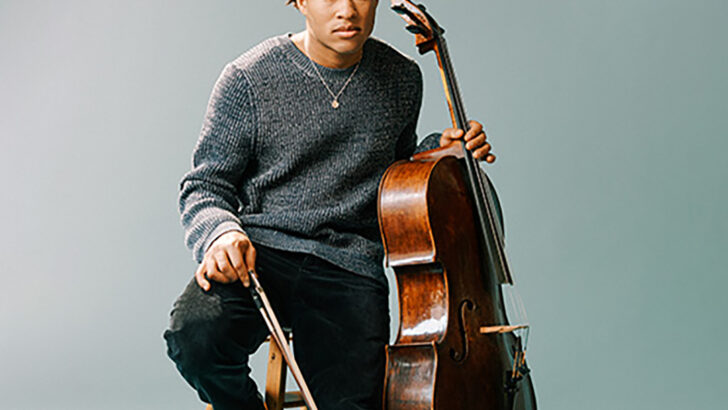Recently reminiscing on my time on the council of the now defunct Music Association of Ireland, I recalled qualms being raised about engaging cellists for the association’s members’ meetings and country tours. A cry would go up “cellists don’t draw”.
However, two recent events at the National Concert Hall proved otherwise. A solo recital by young English artist Sheku Kanneh-Mason and a new concerto by Shaun Davey, played by Cork’s Sinéad O’Halloran, drew ‘full houses’.
Coming from Nottingham, Sheku Kanneh-Mason (24) is third in line in an extraordinary family of seven musicians. Winner of the BBC’s Young Musician Award when he was 16, after which his home city named a bus in his honour, he played at the wedding of Britain’s Prince Harry to American Megan Markle in 2018. He was also the subject of a BBC 4 documentary – publicity that stood him in good stead.
His generous NCH programme opened with Bach’s second Cello Suite and included Britten’s first Suite, written for the Russian master Mstislav Rostropovich in 1964. There were sonatas by Cuba’s Leo Brouwer (b. 1939), dedicated to Kanneh-Mason, and Spain’s Casper Cassadó (1897-1966) as well as pieces celebrating the 200th anniversary in 2022 of London’s Royal Academy of Music, the cellist’s alma mater, by Welshman Gwilym Simcock and Oxonian Edmund Finnis.
While there was much to admire in Mr Kanneh-Mason’s playing and I particularly liked the Bach to which he brought even-flowing momentum throughout its six dancing movements, however, elsewhere I felt his performances were somewhat introverted leaving me somewhere out in the cold.
Belfast-born (1948) and Dublin-domiciled Shaun Davey may well be called an ‘elder statesman’ among our respected composers. His Cello Concerto Refuge, written in 2020 but only now (St Patrick’s Day, 2023) receiving its première, showed the composer’s consistently expressive writing for the instrument.
Soloist Sinéad O’Halloran responded with sensitive beauty and dramatic impulse when required while the NSO, under David Brophy, was no less committed to Mr Davey’s score. With uilleann piper Mark Redmond as the sympathetic and beguiling soloist, Mr Davey’s established ten-movement suite The Brendan Voyage seemed the perfect escort for the fledgling five-movement concerto.
Rakhmaninov’s sesquicentenary celebrations continue at the NCH and elsewhere. Earlier this month his Third Piano Concerto brought Russian/American virtuoso, and Rakhmaninov devotee, Olga Kern to the NCH with the NSO under Leonard Slatkin. Her all-embracing performance conveyed the music’s seductive charm as well as its dramatic ebullience. Powerful stuff, I loved it.
Chamber Choir Ireland, under Paul Hillier, brings the composer’s All Night Vigil, or Vespers, to Belfast’s Clonard Monastery on Friday March 31 and Dublin’s ChristChurch Cathedral on Saturday April 1.
The 1915 piece is a setting of the Russian Orthodox Church’s psalms and prayers for the eve of important festivals.
Rakhmaninov based ten of its 15 sections on traditional chants but provided them with his own characteristic harmonies and variation treatment. The remaining five are the composer’s own interpretations of motifs particular to Russian church music. The ninth of the fifteen, dealing with the Resurrection, is regarded as the Vespers commanding centrepiece. Happy Easter.


 Sheku Kanneh-Mason
Sheku Kanneh-Mason 